Filter by
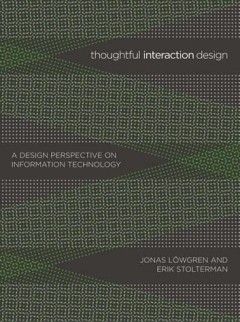
Thoughtful Interaction Design: A Design Perspective on Information Technology
How to think about the shaping and composing of information technology from a design perspective: the aesthetics and ethics of interaction design.OCLC-licensed vendor bibliographic record.
- Edition
- -
- ISBN/ISSN
- 9780262256575
- Collation
- 1 online resource (xiii, 198 pages) :illustrations
- Series Title
- -
- Call Number
- -

Closer :performance, technologies, phenomenology
Susan Kozel draws on live performance practice, digital technologies & the philosophical approach of phenomenology. She places the human body at the centre of explorations of interactive interfaces, responsive systems & affective computing, asking what is to be discovered as we become closer to our computers?OCLC-licensed vendor bibliographic record.
- Edition
- -
- ISBN/ISSN
- 9780262277563
- Collation
- 1 online resource (355 pages).
- Series Title
- -
- Call Number
- -

Context and Consciousness: Activity Theory and Human-Computer Interaction
Intended for designers and researchers, Context and Consciousness brings together 13 contributions that apply activity theory to problems of human-computer interaction. Understanding how people actually use computers in their everyday lives is essential to good design and evaluation. This insight necessitates a move out of the laboratory and into the field. The research described in Context and…
- Edition
- -
- ISBN/ISSN
- 9780262280419
- Collation
- 1 online resource (xiii, 400 pages) :illustrations
- Series Title
- -
- Call Number
- -
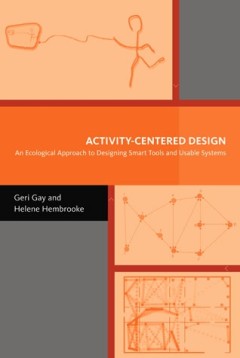
Activity-centered design :an ecological approach to designing smart tools and…
The shift in the practice of human-computer interaction (HCI) Design from user-centered to context-based design marks a significant change in focus. With context-based design, designers start not with a preconceived idea of what users should do, but with an understanding of what users actually do. Context-based design focuses on the situation in which the technology will be used -- the activiti…
- Edition
- -
- ISBN/ISSN
- 9780262256223
- Collation
- 1 online resource (xxi, 111 pages) :illustrations.
- Series Title
- -
- Call Number
- -
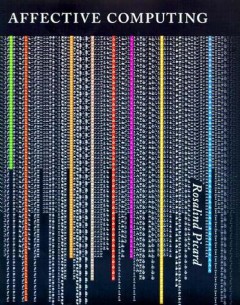
Affective computing
OCLC-licensed vendor bibliographic record.
- Edition
- -
- ISBN/ISSN
- 9780262281584
- Collation
- 1 online resource (xii, 292 pages) :illustrations
- Series Title
- -
- Call Number
- -

Making Use: Scenario-Based Design of Human-Computer Interactions
"Difficult to learn and awkward to use, today's information systems often change our activities in ways that we do not need or want. The problem lies in the software development process. In this book John Carroll shows how a pervasive but underused element of design practice, the scenario, can transform information systems design.Traditional textbook approaches manage the complexity of the desi…
- Edition
- 1
- ISBN/ISSN
- 9780262269926
- Collation
- -
- Series Title
- -
- Call Number
- -

Beyond the desktop metaphor :designing integrated digital work environments
Leading developers and researchers report on what the next generation of digital work environments may look like, analyzing the theory and practice of designing "out of the box" to facilitate multitasking, collaboration, and multiple technologies.OCLC-licensed vendor bibliographic record.
- Edition
- -
- ISBN/ISSN
- 9780262256483
- Collation
- 1 online resource (vi, 360 pages) :illustrations
- Series Title
- -
- Call Number
- -
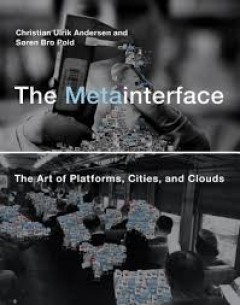
The Metainterface: The Art of Platforms, Cities, and Clouds
How the interface has moved from the PC into cultural platforms, as seen in a series of works of net art, software art and electronic literature. The computer interface is both omnipresent and invisible, at once embedded in everyday objects and characterized by hidden exchanges of information between objects. The interface has moved from office into culture, with devices, apps, the cloud, and d…
- Edition
- -
- ISBN/ISSN
- 9780262346559
- Collation
- 1 online resource (248 pages).
- Series Title
- -
- Call Number
- -
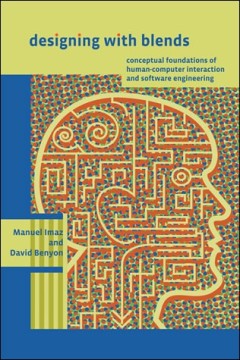
Designing with blends: conceptual foundations of human-computer interaction a…
How recent research in cognitive science offers new ways to understand the interaction of people and computers and develops a new literacy for well-informed, sensitive software design.OCLC-licensed vendor bibliographic record.
- Edition
- -
- ISBN/ISSN
- 9780262256407
- Collation
- 1 online resource (xi, 229 pages) :illustrations
- Series Title
- -
- Call Number
- -
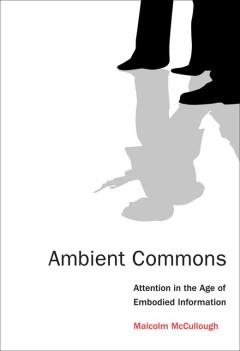
Ambient Commons: Attention in the Age of Embodied Information
The world is filling with ever more kinds of media, in ever more contexts and formats. Glowing rectangles have become part of the scene; screens, large and small, appear everywhere. Physical locations are increasingly tagged and digitally augmented. Sensors, processors, and memory are not found only in chic smart phones but also built into everyday objects. Amid this flood, your attention pract…
- Edition
- -
- ISBN/ISSN
- 9780262313476
- Collation
- 1 online resource
- Series Title
- -
- Call Number
- -
 Computer Science, Information & General Works
Computer Science, Information & General Works  Philosophy & Psychology
Philosophy & Psychology  Religion
Religion  Social Sciences
Social Sciences  Language
Language  Pure Science
Pure Science  Applied Sciences
Applied Sciences  Art & Recreation
Art & Recreation  Literature
Literature  History & Geography
History & Geography